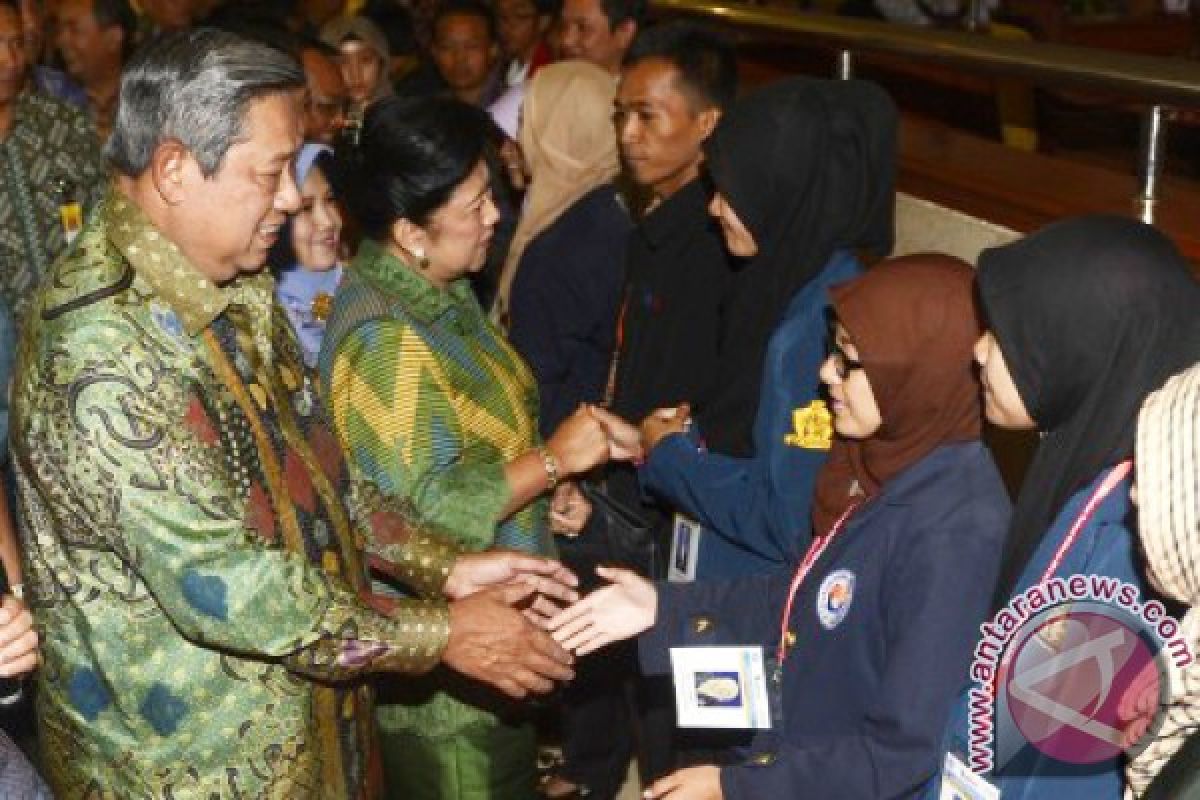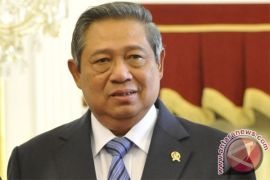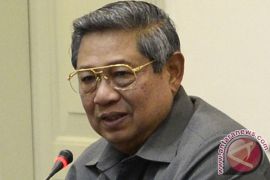I have instructed the culture and education minister to improve and expand the reach of Bidikmisi scholarship program."Jakarta, March 4 (Antara) - The Government of Indonesia plans to provide more students with Bidikmisi scholarships in 2014 as part of its effort to create good leaders of the nation in the future.
Directed to helping outstanding students of economically disadvantaged families, the scholarships aim to motivate them to study harder and achieve to become future leaders of the nation.
Besides that, the program will inspire the recipients to act with a positive purpose in all that they do for their future careers in their community for the good of all.
Therefore, speaking during a gathering with Bidikmisi scholarship recipients last Thursday, President Susilo Bambang Yudhoyono encouraged Culture and Education Minister Muhammad Nuh to expand the reach of the scholarship program.
Education and Culture Ministry this year will allocate funds for 60 thousands students through Bidikmisi scholarship program.
"Following an increase in education budget, I have instructed the culture and education minister to improve and expand the reach of Bidikmisi scholarship program," the president stated.
Bidikmisi is the Education and Culture Ministrys scholarship program that was launched by Minister Muhammad Nuh during his first 100 days in office in 2010.
It is a scholarship scheme that targets talented students, particularly from poor families, to pursue tertiary education.
The head of state asserted that the state has a moral responsibility to ensure that all citizens, with or without money, have access to education.
"Education is for all and therefore, there should be no child in this country who does not attend school because of financial difficulty," the president noted.
Meanwhile, Culture and Education Minister Muhammad Nuh pointed out that Bidikmisi was aimed to break the long-held myth that poor students cannot enjoy tertiary education.
"We want to exempt them from all tuition fees and provide them with the cost of living," the minister elaborated.
By late 2013, 149,768 students from 98 state institutes of higher learning and 590 private institutes of higher learning across Indonesia received the scholarships.
The minister added that only 1.7 percent of students from poor families studied at institutes of higher learning in 2007, and the figure increased to 4.7 percent in 2011.
"We hope that 15 percent of students from poor families will enjoy tertiary education in the next five years," he asserted.
Under the program, institutes of higher learning have to necessarily allocate 20 percent of their seats to students belonging to underprivileged families.
On separate occasion some time ago, the culture and education minister pointed out that Bidikmisi scholarships for college students will also be extended to cover professional learning in 2014.
He mentioned that the Bidikmisi will facilitate economically disadvantaged students who graduated from the medical faculty and who wished to continue with the professional education.
"The students who graduate from medical faculty need to continue with the profession education. This is a kind of profession that will be supported by Bidikmisi scholarships," the minister explained.
Minister Nuh noted that Bidikmisi is an affirmative program, which is regulated under the Higher Learning Law, and therefore, the program will remain even if the culture and education minister changes in the future.
According to him, only 10 thousand students received the Bidikmisi scholarships in 2010 when the program was launched, but the number of recipients has risen to 60 thousand each year since then.
The minister stated that the number will continue to increase and within the next four years, some 240 thousand students will have received such kind of scholarships.
Further, he added that there were scholarship program for both state and private universities to increase student enrollment rate.
But he also admitted that this scholarship program has not yet been distributed well among the poor.
Meanwhile, Indonesian Private Universities Association (APTISI) Chairman Edy Suandi Hamid has urged the government to give greater number of Bidikmisi scholarships to prospective high performing students from poor families who wish to study in private universities.
"Greater number of Bidikimisi scholarships must also be given to high performance students who wish to study at private universities, based on the universities financial abilities," Edy stated in Yogyakarta on Sunday.
He noted that the Bidikmisi scholarships program was of great help for prospective students with high achievement from low-income families, besides increasing gross participation numbers among colleges.
"APTISI appreciates the governments Bidikmisi scholarships program through the Ministry of Culture and Education," explained the APTISI chairman, who is concurrently the rector of Yogyakarta Indonesian Islamic University.
Asked about the Accreditation of Higher Educational Institutions (AIPT), Edy pointed out that both the accreditation policy and the program of study to be implemented this year, as requested by the Ministry of Culture and Education, was not realistic.
"A minimum budget and a relatively short time, coupled with a large number of universities that have to be accredited, will make the policy impossible to be implemented this year," he noted.
According to him, about 3,250 state and private universities have yet to be accredited, and certainly, the National Accreditation Agency for Higher Education (BANPT) will find it difficult to accredit the higher education institutions in a short period of time.
"The budget for BANPT is enough only to accredit a total of 60 higher education institutions this year. Therefore, we ask the government to make a legal corridor to save private universities," he added.
Commenting on the culture and education ministers Regulation No.84/2013 on the recruiting age limit of 50 years for lecturers, he added that it was contra-productive for private universities.
"It is contra-productive for the development of private universities because experienced lecturers with doctoral degrees there are over 50 years old," he noted.
(Uu.O001/INE/KR-BSR)
Reporter: otniel tamindael - (d)
Editor: Priyambodo RH
Copyright © ANTARA 2014












